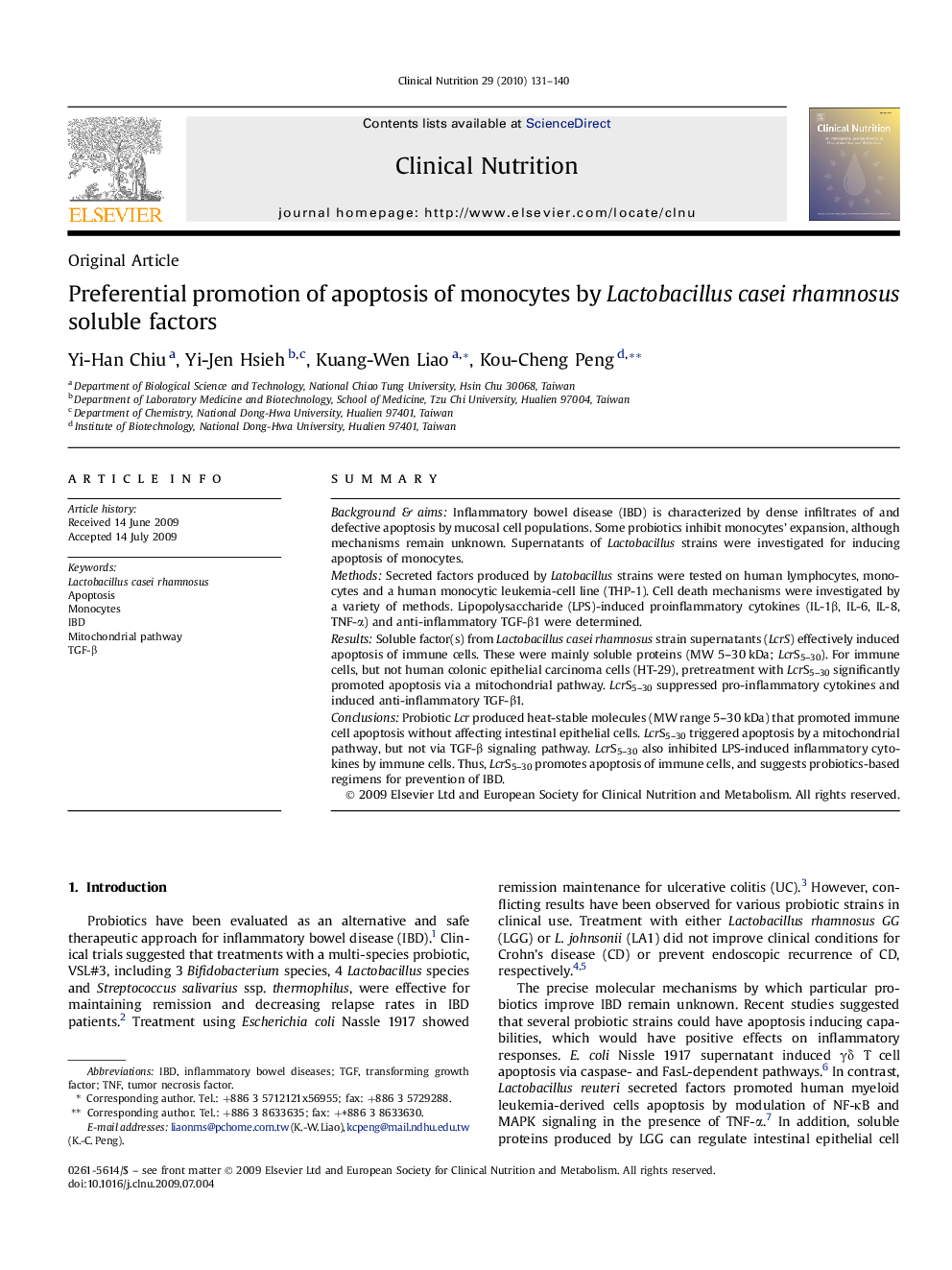| Article ID | Journal | Published Year | Pages | File Type |
|---|---|---|---|---|
| 2687293 | Clinical Nutrition | 2010 | 10 Pages |
SummaryBackground & aimsInflammatory bowel disease (IBD) is characterized by dense infiltrates of and defective apoptosis by mucosal cell populations. Some probiotics inhibit monocytes' expansion, although mechanisms remain unknown. Supernatants of Lactobacillus strains were investigated for inducing apoptosis of monocytes.MethodsSecreted factors produced by Latobacillus strains were tested on human lymphocytes, monocytes and a human monocytic leukemia-cell line (THP-1). Cell death mechanisms were investigated by a variety of methods. Lipopolysaccharide (LPS)-induced proinflammatory cytokines (IL-1β, IL-6, IL-8, TNF-α) and anti-inflammatory TGF-β1 were determined.ResultsSoluble factor(s) from Lactobacillus casei rhamnosus strain supernatants (LcrS) effectively induced apoptosis of immune cells. These were mainly soluble proteins (MW 5–30 kDa; LcrS5–30). For immune cells, but not human colonic epithelial carcinoma cells (HT-29), pretreatment with LcrS5–30 significantly promoted apoptosis via a mitochondrial pathway. LcrS5–30 suppressed pro-inflammatory cytokines and induced anti-inflammatory TGF-β1.ConclusionsProbiotic Lcr produced heat-stable molecules (MW range 5–30 kDa) that promoted immune cell apoptosis without affecting intestinal epithelial cells. LcrS5–30 triggered apoptosis by a mitochondrial pathway, but not via TGF-β signaling pathway. LcrS5–30 also inhibited LPS-induced inflammatory cytokines by immune cells. Thus, LcrS5–30 promotes apoptosis of immune cells, and suggests probiotics-based regimens for prevention of IBD.
